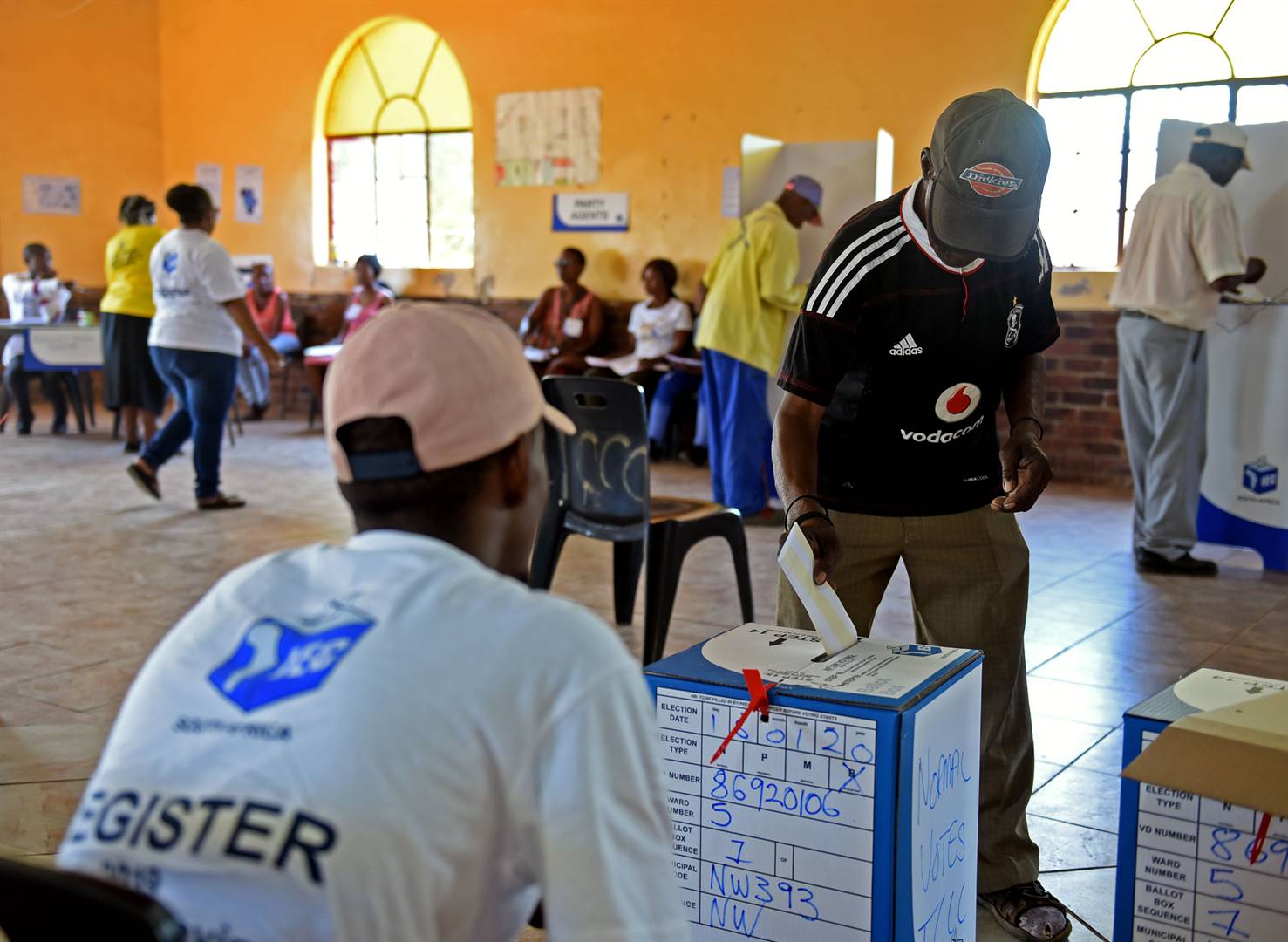


The IEC confirmed that a court order was obtained granting a further extension for by-elections to proceed by November 18 this year. Picture: Tebogo Letsie/City Press
POLITICS
The ANC and the EFF have agreed on the proposed postponement by the Electoral Commission of SA (IEC) of next year’s local government elections.
The two parties even suggested that the elections should be consolidated, with national, provisional and local government elections being conducted in the same year. The DA is against the proposal and does not agree that the election calendars be synchronised.
Local government elections are held two years after the national and provincial elections.
The EFF has called for next year’s local government elections to be conducted in 2024 with the national and provincial elections.
Marshall Dlamini, EFF secretary-general, said the Covid-19 coronavirus pandemic had initiated the debates on whether it was really necessary to have separate elections, adding that the EFF was in favour of aligning the local government elections with the national and provincial elections. Dlamini said the EFF would make submissions to Parliament in this regard.
“This pandemic has made it clear to us that we don’t need to have more than one election.
“We are calling for a postponement of the local government elections to 2024 and it must be made permanent. We will make submissions to Parliament regarding this.
“An exception can be made to municipal elections; they can hold by-elections if a municipality is not functional,” he said.
What we can say with certainty is that our national lockdown has affected the IEC’s preparations for the local government elections
Mkhuleko Hlengwa
Dlamini argued that having two elections resulted in the state incurring unnecessary costs that could be funnelled into the strained fiscus.
Ace Magashule, secretary-general of the ANC, said this week that the governing party’s legislatures and the governance subcommittee of the national executive committee had been given the task of researching the elections and developing several proposals.
Magashule said that among the proposals discussed by the national working committee — which runs the party’s daily activities — was the desirability of synchronisation of elections at national, provincial and local spheres of government.
Another option the ANC top brass was considering was “the desirability of introducing elements of constituency-based representation at national and provincial spheres, consistent with the constitutional requirement for an electoral system that results, in general, in proportional representation”. The use of electronic voting was also suggested as an alternative.
Speaking to City Press, Helen Zille, the federal chairperson of the DA, said that there was no need to postpone elections, as they could be held later next year.
“The elections can happen within 90 days either side of the anniversary of the local government election five years previously. That means that the election could be held early in November next year.
‘That is enough to make up for the time lost.” Zille acknowledged the challenges that could occur with canvassing votes but said that the virtual system was effective.
Read: ConCourt declares parts of the Electoral Act unconstitutional
“We will meet the challenges. So far, we are finding online processes very effective,” she said.
Mkhuleko Hlengwa, spokesperson for the Inkatha Freedom Party, said it was premature to speak about postponing elections. However, he noted that the pandemic had affected the elections.
“What we can say with certainty is that our national lockdown has affected the IEC’s preparations for the local government elections. “Yet we are bound by our Constitution and, more specifically, by the time frame elected representatives can serve – five years.
“It is too early to say whether the Covid-19 pandemic will have been contained in a year’s time.
“It is most likely that there will be a greater shift to social media, which is in line with the general shift to online activity.
“But this is not due to the effect of the Covid-19 pandemic but the reality of political messaging in an increasing technological society,” he said.
Hlengwa said that getting rid of local government elections as proposed by the EFF was “ludicrous” becaue it would not cater to local societal issues.
“Combining all three government elections runs the risk of focusing on party more than candidate. This will have an effect on local government, the closest form of government to the people.”
The elections can happen within 90 days either side of the anniversary of the local government election five years previously. That means that the election could be held early in November next year
Helen Zille
Hlengwa said: “The issues and mandate parties raise during local government elections are different to those in national and provincial elections, such as access to water and electricity, as well as community concerns.
“Combining elections runs the risk of eroding the effectiveness of local government and the real representivity of candidates.”
When questioned about its strategy for dealing with the challenges faced by the EFF in reaching voters, Dlamini said the party had started to educate and support members to adjust to the new system.
“The pandemic has taught us that we need to adjust as a party and to teach our members how the digital system works.
“We are communicating with structures on how to reach our members online from regions, provinces and branches, and help ease them into the system. We all need to adapt to the system and the new way of living,” he said.
The Covid-19 virus had resulted in many political events being postponed. The IEC confirmed that a court order was obtained granting a further extension for by-elections to proceed by November 18 this year.
|
||||||
   |


